Energy keeps us active and provides power to complete our daily activities. Without energy, our bodies are like cars without gas, plants without oxygen or the Earth without Sun. No matter what activities we endure throughout the day, we all need good sources of energy to keep us going. Energy fuels our tank. Our main source of energy is food.
Breakfast is the meal that sets you up for the day. It replenishes your body's energy supply after a night's fast and provides the energy needed to stay physically and mentally alert. Breakfast enhances learning and physical performance. Without breakfast, your body runs on empty. Studies have shown that kids who eat breakfast concentrate better, are more creative and behave better - this applies to adults as well.
Iron
Iron-deficiency anemia is one of the most common nutritional deficiencies in North America. Iron is essential for producing hemoglobin, the main component of red blood cells. Hemoglobin carries oxygen to your body's cells, where it is used to produce energy and perform essential metabolic functions. If your iron stores are low, your red blood cells can't supply as much oxygen to the cells.
The consequences of iron deficiency are fatigue, low energy and difficulty concentrating. The best food sources are red meats, organ meats, iron-fortified cereal products and whole-grain or enriched breads, dried fruits, green leafy vegetables, beans, nuts and seeds, and blackstrap molasses.
Carbs
Carbohydrates found in breads, grains, cereals, fruits, vegetables and sweets are digested and end up as the simple sugars glucose and fructose. These carbs provide fuel for your brain, muscles and other body tissues.
Complex carbohydrates in whole-grain breads and cereals, lentils, legumes and other starchy vegetables are the fuel of choice since they are digested gradually and serve as a steady fuel supply for body and brain. In addition, they provide many important vitamins, minerals and plant chemicals to keep your body well-nourished. Foods do the body good!
If you incorporate regular physical activity into your daily routine, adding an extra intake of energy foods to your diet is essential. If you're always on the go, you need to maximize your intake of energy foods, keeping your fat intake under control.
The list of vegetables that supply your body with high amounts of energy is extensive.
Here is a list of energy foods that can easily be integrated into your daily diet. High-energy foods supply your body with the additional energy needed to get through the day. Enjoy!
1. Apple
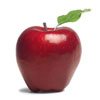
Apples provide the necessary fiber to maintain a healthy bowel, while apple pectin, retrieved from the apple's peel, supports overall wellness.
2. Banana
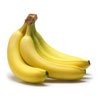
Bananas contain a good amount of fiber. Fiber helps get rid of toxic substances contained in our bodies. The banana helps reject impurities and provides potassium. Potassium helps maintain normal muscle function and aids the nervous system.
3. Eggplant
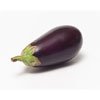
Eggplants are ideal to eat about one hour before your daily sports activity. Antioxidants provided by eggplants help fight exercise-induced free radicals. This vegetable also contains carotenoids, which aid in overall wellness.
4. Apricot
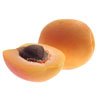
Apricots have been traditionally used as an aphrodisiac. Apricots contain B vitamins, which may contribute to their traditional benefits.
5. Grapefruit
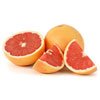
A wonderful energy food, the grapefruit is known to support overall health. Grapefruits are also popular with dieters, while providing high energy.
6. Yogurt
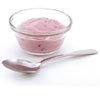
Yogurt is full of B vitamins, which help your body convert other nutrients into energy. However, you should choose low-fat or non-fat varieties. Mix yogurt with nuts for a healthy energy snack. Probiotics in yogurt can also support immune health.
7. Cheese
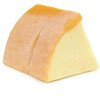
Cheese contains calcium, which is essential for bone health. Calcium is also involved in muscle and nerve function.
8. Orange
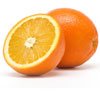
Orange juice provides extra energy along with a complete series of vitamins. Vitamin C can support your immune system for overall health and vitality. But, too much Vitamin C can be acidic to your body, so drink these juices in moderation. Oranges are also beneficial during times of seasonal change.
9. Green Tea
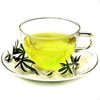
It is widely known that Green Tea is full of polyphenols, which keep the body strong and energized. Green Tea also supports breast health.
10. Tuna
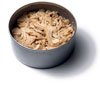
Tuna fish is great for people with low intakes of Vitamin B-12, which is needed for red blood cell production. Tuna is rich in Omega 3, a substance that helps both body and mind. The protein in tuna also supports lean muscle, so don't avoid it if you are performing regular sports activities.
In Addition
Kidney beans, lentils, baked beans and many others also provide great sources of energy for your body. Sunflower and pumpkin seeds are a great source of energy, too. The list goes on and on.
So there you have it, an easy-to-follow list of foods that can help your body be more energetic throughout the day.
Good Fatty Acids
Essential Fatty Acids (EFAs) are a key issue in society right now - mainly because we are generally deficient in them. With the media's infatuation with low-fat diets and fast-food consumption on the rise, we have almost forgotten that the body actually needs some fats for optimal health and energy.
These EFAs, or "good fats," are considered necessary for human growth and cell production and must be consumed through additional nutrition sources because the body cannot produce them itself. The body needs EFAs to be able to function optimally - as well as to support the production of healthy hair, skin and nails.
Types Of EFAs
There are basically two types of essential fatty acids: Omega-3 fatty acids, also known as linolenic acids, and Omega-6 fatty acids, which are also called linoleic acids.Omega-3 EFAs are found in deepwater fish, fish oil and some vegetable oils, such as canola, flaxseed and walnut oil. Nuts are also a good source of Omega-3 fatty acids, particularly hazelnuts, almonds, pecans, cashews, walnuts and macadamia nuts.
The best fish oil sources are salmon, mackerel, anchovies, sardines and herring, which have a high fat content and provide more Omega-3 than other fish. Flaxseeds are also a good source, and they are low in saturated fats and calories and have no cholesterol.
The benefit in consuming Omega-3 fatty acids lies in the fact that they support coronary artery health, helping to maintain healthy blood flow throughout the body.
Like Omega-3 fatty acids, Omega-6 fatty acids are also found in raw nuts, seeds, legumes and in unsaturated vegetable oils, such as borage oil, grape seed oil, primrose oil, sesame oil and soybean oil.
Always consult your doctor before beginning this or any training or diet/supplement program.
*These statements have not been evaluated by the Food & Drug Administration. This product is not intended to diagnose, treat, cure, or prevent any disease.
Use in conjunction with an intense daily exercise program and a balanced diet including an adequate caloric intake.
